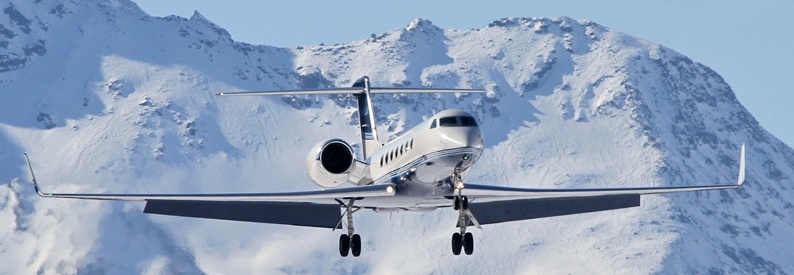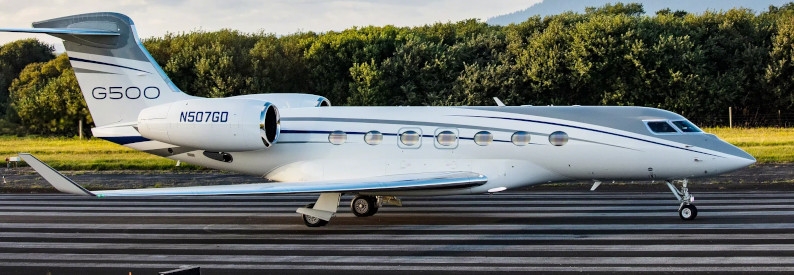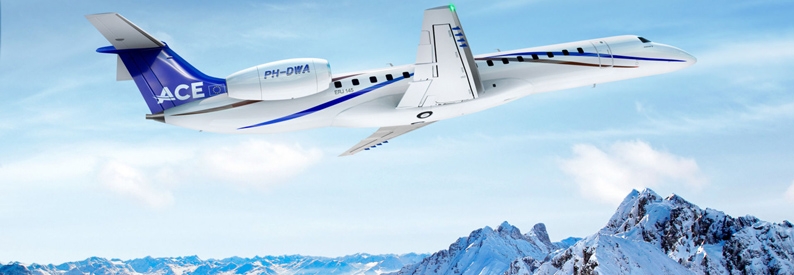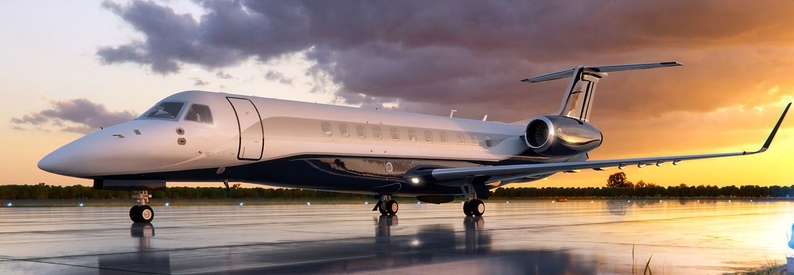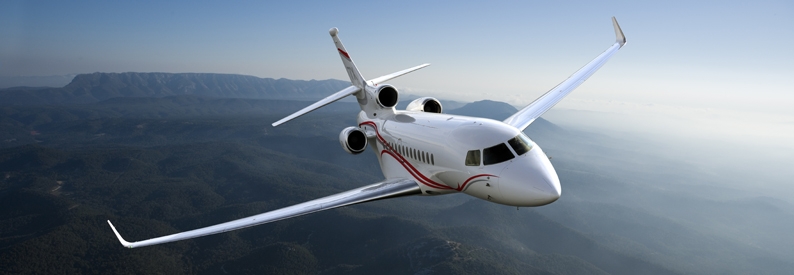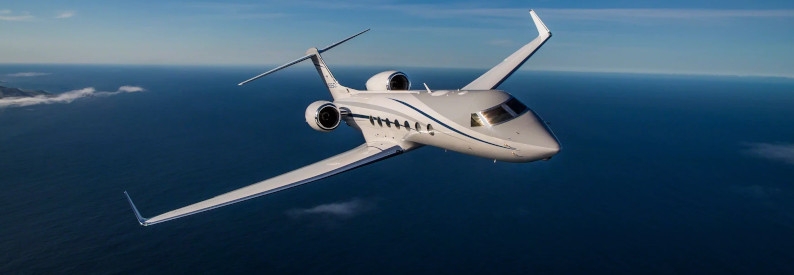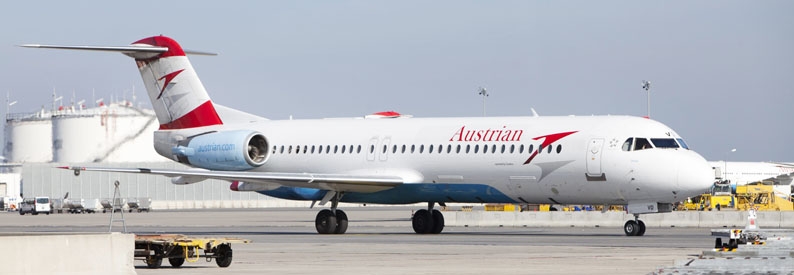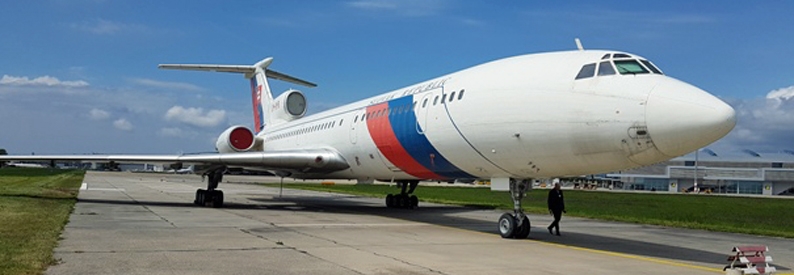Business customers who began using private charters during the Covid-19 pandemic have remained loyal to the market even as scheduled carriers rebuild their networks, driving demand for aircraft management and charter for Austria's MJET (Austria) (MJF, Vienna), Chief Executive Darko Cvijetinovic and Chief Commercial Officer Antonia Gilbert told ch-aviation in an exclusive interview at the carrier's headquarters near Vienna Airport.
"The first-time flyers are still here. These customers got used to private jets and are not stepping down," Cvijetinovic said.
Gilbert added that while leisure customers also began using private jets more extensively during the pandemic, they largely returned to scheduled carriers after the crisis. But business customers realised that private charters allowed them to use the time of top executives more efficiently and remained even as more scheduled flights took to the skies.
Fleet preferences
The carrier supports a total of 14 aircraft in its fleet, of which seven are on its Austrian AOC: one ACJ319-100, one Gulfstream G650, two GVII-G500s, one Gulfstream G200, one Challenger 650, and one Legacy 600. Despite the dominance of Gulfstream Aerospace aircraft in its in-house operated fleet and extensive experience with the type's deliveries, MJet does not have a strategic focus on one manufacturer.
"We serve the customer with the product they require. So there is no specialisation. The fact that the majority of our fleet are Gulfstreams is something that happened - if you're good at something then that's where you usually expand. And, of course, it's about personal relationships. However, we strive to have the same excellent relationship with every manufacturer. We don't exclude anyone from the portfolio," Gilbert explained.
The airline has experienced supply chain issues that slow aircraft deliveries and refurbishments, but Cvijetinovic said that charter customers are usually understanding. As company owners and managers, they tend to experience the same kind of issues in their businesses.
"The supply chain is improving. We learned how to deliver. In the past, you put something on order and you knew it would arrive two days later. Now you are just making a Plan B and Plan C. Most of our customers have the same problems in their fields," he explained.
Customer preferences
MJet focuses predominantly on aircraft management, and its fleet decisions respond to customers' demands. While "most" of its aircraft are at least partially available for charter on the market, Gilbert underlined that availability is driven by the owners and their preferences, and utilisation assists owners with selecting the type and equipment for the aircraft.
Cvijetinovic said that while customer preferences vary greatly, a common thread is the emphasis on onboard connectivity. With a growing number of connectivity providers, some still under certification and others already available, the choice becomes ever more complicated.
The CEO said the other important aspect for charter customers is flexibility. Gilbert added that while the company sees strong demand for ultra-long-range jets, particularly out of the Middle East, not all customers need an aircraft capable of flying nonstop, and some prefer a cheaper charter for an aircraft that would require a refuelling stop.
Bizliner outlook
Cvijetinovic added that the ACJ319 in the airline's fleet is "a niche within a niche".
"There is a very, very limited base of customers who are served by such big aircraft. We are happy to operate one, and if one of our customers demands an ACJ or a BBJ, we will always be happy to keep the plane in the air for them," he said.
MJet's experience with the ACJ319 is a unique selling point for the carrier, given the specific challenges associated with operating such aircraft. As part of the work with the Airbus Corporate Jets customer advisory board, the operator is currently working constructively with the manufacturer and has made "great progress" to create a dedicated maintenance schedule for bizliners based on hours flown, not time passed since the last check.
Regulatory environment and decarbonisation
Given the increasing political and social pressure to curb business aviation in Europe, MJet sees the need to engage in more open dialogue with the public and environmental groups. The executives pointed out that a lot of the arguments do not reflect the reality of the industry and its efforts to decarbonise.
"We always wanted to keep quiet. We never wanted to be out there [in the media]. But we're at a point now where we have to be out there and justify what we've done over the past two decades. All we lack - coming back to the regulatory environment - is the commitment from our national government and the EU to finally make rules and make room for initiatives like [SAF] book and claim. We all know it is not the final solution to the problem, but it's a tool to increase the demand and then the supply of sustainable aviation fuel in different locations," Gilbert stressed.
She emphasised that business aviation is willing to be at the forefront of using SAFs but simply needs them to be more readily available.
While sceptical about the near-term availability of hydrogen or electric propulsion for business jets, Cvijetinovic underlined that technological innovation is usually faster at the top-end range of any industry.
"Of course, all this is very expensive. And you would rather implement it first on a lower scale with business jets than with the airliners," he explained.
MJet is not currently focusing on any other new propulsion technologies. Cvijetinovic said they are "extremely exciting" but unlikely to be ready to be deployed on commercial passenger operations any time soon. The operator is ready to add eVTOLs to its charter offer once they are certified but does not consider them a focus area of its operations.

